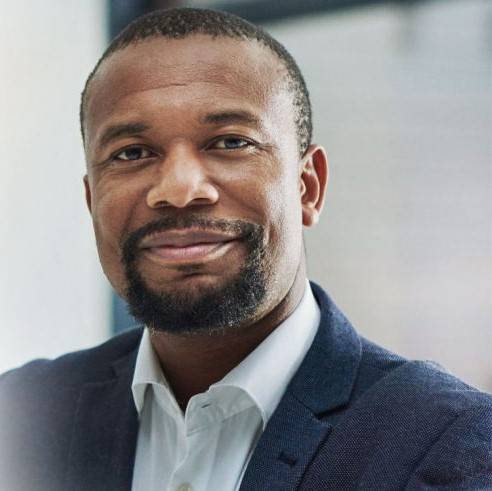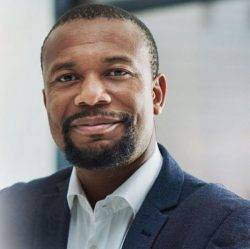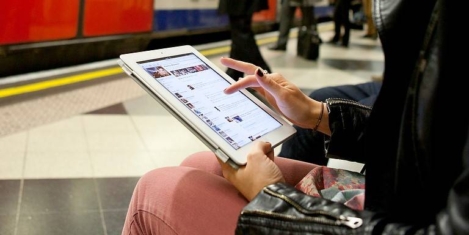August 18, 2017
Almost a quarter of Millennials are unhappy in their current work situation

A majority (85 percent) of 18-34 year olds feel they are not putting their professional ambitions into practice and almost a quarter are unhappy at work, claims a new survey of Millennials by one of the UK’s largest independent higher education institutions, GSM London. By 2020, millennials will make up 35 percent of the global workforce, but despite being the generation told that they can have it all, nearly a third (32 percent) of those surveyed described their work as a ‘means to an end’, with 64 percent describing themselves as having just a ‘job’ rather than a meaningful ‘career’. However, when it comes to pursuing a more meaningful career path, a quarter of respondents cited the pressure of uncertainty (25 percent), disruption to lifestyle (24 percent) and lack of confidence (22 percent) as the main barriers stopping them from fulfilling their goals.













 It may still be the summer holiday season but if you’re finding it easier than you’d expect to get hold of people, it’s because they’re probably checking their emails on the beach. A new survey by Wrike claims that 73 per cent of British employees work while on holiday. The main reason? They can’t relax unless they know everything is going okay in the office. Those from France and Germany have a slightly more relaxed state-of-mind. While 35 per cent of UK workers said they feel better keeping in touch with the office and the Germans aren’t that far behind, with 30 per cent saying keeping one eye on their work was the key to relaxation; in France only 22 per cent felt the same. Brits also said that working while away was because they were hoping to minimise the amount of work they would have to come back to (22 per cent).
It may still be the summer holiday season but if you’re finding it easier than you’d expect to get hold of people, it’s because they’re probably checking their emails on the beach. A new survey by Wrike claims that 73 per cent of British employees work while on holiday. The main reason? They can’t relax unless they know everything is going okay in the office. Those from France and Germany have a slightly more relaxed state-of-mind. While 35 per cent of UK workers said they feel better keeping in touch with the office and the Germans aren’t that far behind, with 30 per cent saying keeping one eye on their work was the key to relaxation; in France only 22 per cent felt the same. Brits also said that working while away was because they were hoping to minimise the amount of work they would have to come back to (22 per cent).

 There is growing sentiment among younger workers that flexible working is less a right – as outlined by the Government in 2014 – and more a ‘selective benefit’ for a choice group of employees. New research by
There is growing sentiment among younger workers that flexible working is less a right – as outlined by the Government in 2014 – and more a ‘selective benefit’ for a choice group of employees. New research by 




 UK employment is predicted to grow strongly in the third quarter of 2017, but wage growth is likely to remain weak, according to the latest CIPD/The Adecco Group Labour Market Outlook. Although the UK labour market remains buoyant, basic pay award expectations for the next 12 months remain at just 1 percent. Put against the backdrop of poor productivity growth, the report points to an increase in labour supply over the past year as a key factor behind the modest pay projection. This is driven by relatively sharp increases in the number of non-UK nationals from the EU, ex-welfare claimants and 50-64 year olds. This increase in labour supply may explain why the jobs market remains challenging for some jobseekers, especially those seeking lower-skilled jobs. Employers report a median number of 24 applicants for the last low-skilled vacancy they tried to fill, compared with 19 candidates for the last medium-skilled vacancy and eight applicants for the last high-skilled vacancy they were seeking to fill. Overall, employers felt that around half of applicants were suitable for each role they were trying to fill.
UK employment is predicted to grow strongly in the third quarter of 2017, but wage growth is likely to remain weak, according to the latest CIPD/The Adecco Group Labour Market Outlook. Although the UK labour market remains buoyant, basic pay award expectations for the next 12 months remain at just 1 percent. Put against the backdrop of poor productivity growth, the report points to an increase in labour supply over the past year as a key factor behind the modest pay projection. This is driven by relatively sharp increases in the number of non-UK nationals from the EU, ex-welfare claimants and 50-64 year olds. This increase in labour supply may explain why the jobs market remains challenging for some jobseekers, especially those seeking lower-skilled jobs. Employers report a median number of 24 applicants for the last low-skilled vacancy they tried to fill, compared with 19 candidates for the last medium-skilled vacancy and eight applicants for the last high-skilled vacancy they were seeking to fill. Overall, employers felt that around half of applicants were suitable for each role they were trying to fill.













